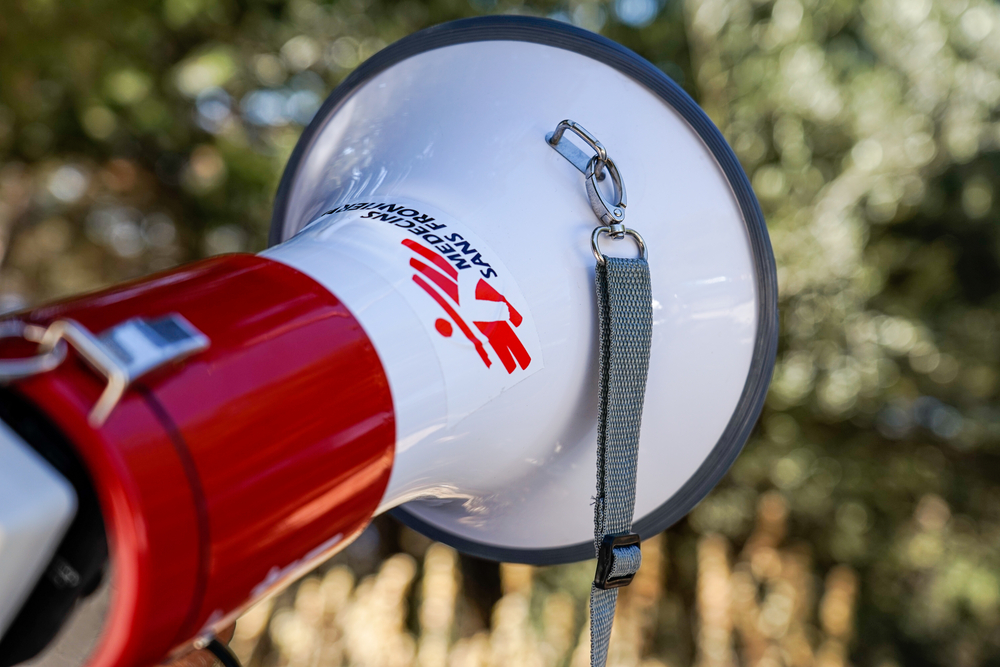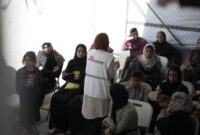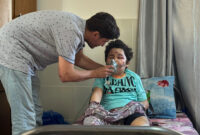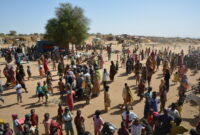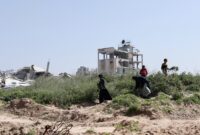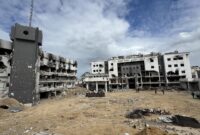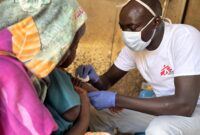Shut up and provide aid: why weaponizing neutrality against humanitarian organizations must not silence us
“The most important thing you can do is let the world know what is happening here.”
This recent plea from Dr. Abu Baker, a hospital director in the West Bank, is a familiar one for our teams at Doctors Without Borders/ Médecins Sans Frontières (MSF). The simple request – to share the grave realities we directly witness during conflicts and crises – is one we hear repeatedly from our patients and colleagues in over 70 countries around the world. Their words come as whispered prayers in hospitals caught in warzones, as hopeful demands from young people trapped in displacement camps, or for Dr. Abu Baker, as a desperate plea while mourning the death of a colleague killed during a military incursion.
For many humanitarian organizations, it is a moral responsibility to speak out about the suffering we witness. Yet today, against the backdrop of rising polarization and misinformation in Canada and around the world, humanitarian organizations like ours are heavily criticized and vilified as “politicized” or “non-neutral” for sharing direct testimonies and medical evidence from crises in Gaza, Sudan and beyond. These false accusations undermine the credibility of our humanitarian work, and send a harrowing threat to organizations everywhere: shut up and provide aid only.
This growing trend of weaponizing the humanitarian principle of neutrality against organizations who speak out is perhaps most pronounced in the current war in Gaza. For MSF, we expressed horror at the mass killing of civilians perpetrated by Hamas on October 7, and then the massive attacks on Gaza now perpetrated by Israel. Our communications in Gaza have consisted of sharing patient testimonies and independent medical data about widespread suffering due to indiscriminate bombing, destruction of healthcare, and lack of access to basic food, water, electricity and medical supplies.
The situation in Gaza has been the focus of our testimony, given the immense unmet needs and our current response in this context. Nevertheless, our positions have been misconstrued by some critics as “biased” and “one-sided” instead of what they really are: an extension of our over fifty years of humanitarian obligation to speak out wherever governments or actors implement policies that are harmful to the health and safety of our patients and staff.
These kinds of accusations aren’t limited to humanitarian communications on Gaza. In Europe, humanitarian organizations providing search and rescue activities along the Mediterranean Sea have been baselessly criticized and criminalized for “aiding and abetting illegal immigration.” After seven years of false accusations against organizations speaking out and performing life-saving search and rescue committees, an Italian case charging MSF and others of “collaborating with smugglers” was only dismissed earlier this year.
In wars where humanitarian workers have already suffered heavy losses, these narratives are not only inaccurate, they’re deeply dangerous. In Sudan, for example, violent incidents and threats made against MSF staff forced our teams to evacuate from Turkish Hospital in Khartoum earlier this month. Since war began a year ago, MSF working at this hospital have been frequently harassed going to and from work, and threatened with arrest.
There are ways that Canadians can step up against polarizing narratives that seek to silence humanitarian organizations. This includes flagging online content containing blatant misinformation or disinformation so social media platforms like Meta and X take action to pull down this content. This also means approaching humanitarian news with a critical eye to read beyond intentionally polarizing headlines, checking the biases of authors, and considering supporting sources.
The principle of neutrality – which we uphold as a humanitarian imperative to safeguard organizations in conflicts – must not be weaponized to silence us. Amplifying humanitarian needs in Gaza is not anti-Israel, nor pro-Hamas. Calling for safe passage on the Mediterranean Sea is not anti-European, nor complicit with smugglers. Speaking out about attacks against healthcare in Sudan is not about supporting the military agenda of one warring party over another. We must reject these false polarizations that seek to divide us and keep the world from seeing medical humanitarian realities as they are.
Speaking out is not choosing political or military sides in a conflict. Far from it: it is about placing ourselves firmly on the side of our shared humanity.
